Resource Archive - Low- and Moderate-Income Clean Energy
SEARCH RESOURCES
You can also search by author name.
RESOURCE TYPES
RESOURCE TOPICS
RESOURCE PROJECTS
RESOURCE YEARS
This document is a comprehensive list of the functions needed to design and deploy a low- and moderate-income solar program as part of the Greenhouse Gas Reduction Fund Solar for All competition. This list can help states clarify which functions are needed and which are not for each program/sector, evaluate which functions to keep in-house vs. procure externally, and negotiate with EPA with a clearer understanding of next steps.
This report summarizes trends and calculates the potential impact of the EPA’s $7 billion Solar for All competition. The report provides the first public look into the range of state proposals that have been submitted in response to this competition. It can serve as a market readiness tool, to help states prepare for a massive and historic influx of LMI solar funding.
This explainer introduces states deploying federal funding to rules regarding worker protection, local wages, and benefits under the Davis Bacon Act. The plain English question-and-answer document was specifically prepared for states that will implement Greenhouse Gas Reduction Fund Solar for All programs, but it will be useful to other state agencies deploying Inflation Reduction Act funding.
In this resource guide, CESA recommends four previously published resources that elaborate on what state energy agencies should consider when conducting stakeholder outreach and engaging with community-based organizations.
CESA compiled this database of over 400 community-oriented organizations with a focus on or interest in clean energy at the local level, especially for low-income and disadvantaged communities. The database especially emphasizes groups that seek to advance solar energy and environmental justice.
CESA compiled this database of over 400 community-oriented organizations with a focus on or interest in clean energy at the local level, especially for low-income and disadvantaged communities. The database especially emphasizes groups that seek to advance solar energy and environmental justice.
Manufactured homes, formerly referred to as mobile homes, comprise over 6 percent of America’s housing stock and represent an even larger share of housing for low- and moderate-income households. CESA has published an update to the “Solar for Manufactured Homes” report discussing potential funding opportunities through the Inflation Reduction Act.
This Low- and Moderate-Income (LMI) solar lease template consumer disclosure form offers an example that states and other stakeholders can use to ensure that LMI customers participating in state programs designed to broaden solar access receive the information they need to understand their solar contracts. This template is meant to be used as a starting point for states building solar lease (or PPA) programs.
This guide offers simple options for states to add Multifamily Affordable Housing (MFAH) solar and/or solar+storage to their application to the $7 billion Greenhouse Gas Reduction Fund (GGRF) Solar for All competition (Solar for All) and take advantage of the new tax credit features of the Inflation reduction Act.

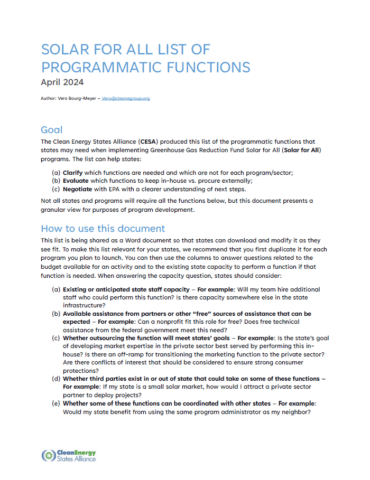
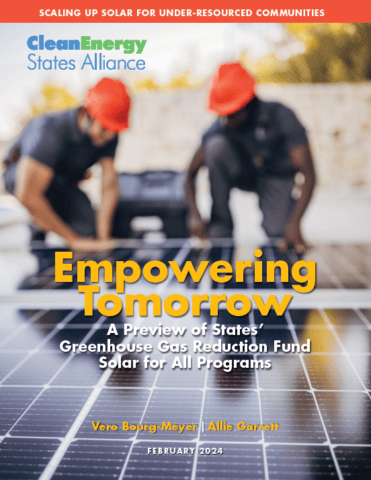
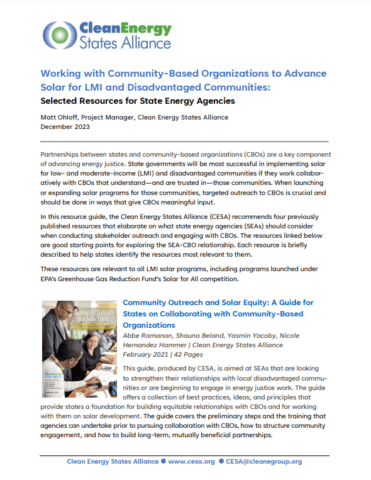
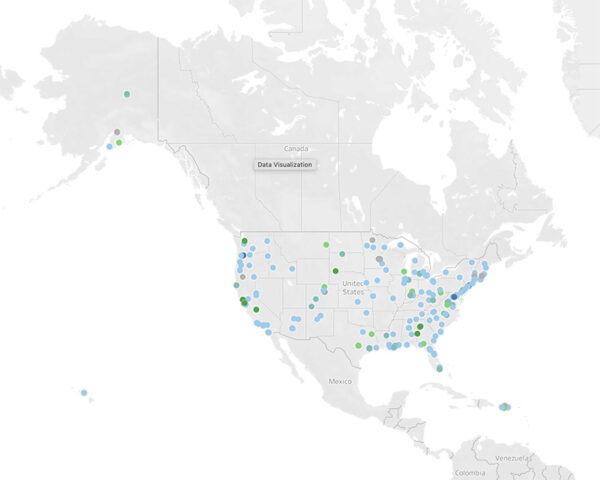
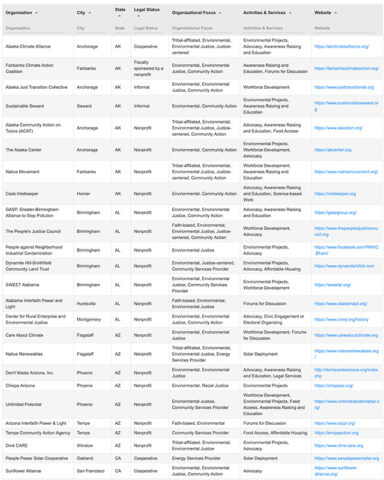
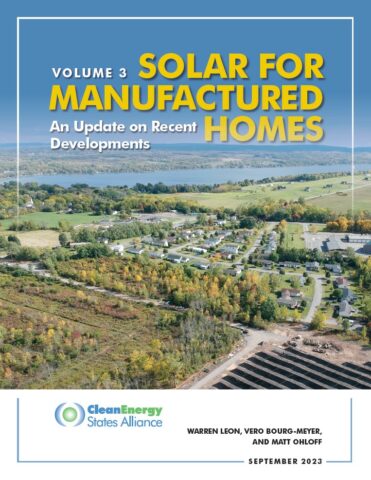
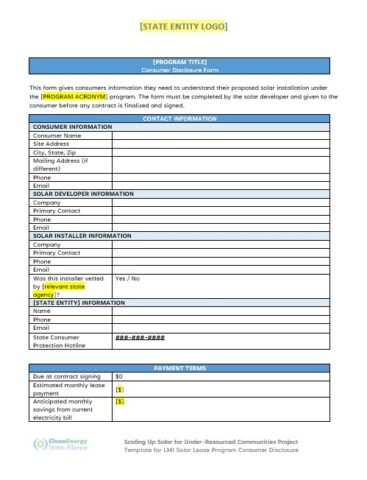
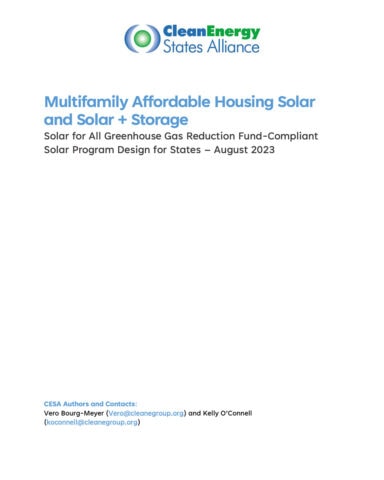
Comments on the Impacts of Proposed Regulatory Capital Requirements for Large Banks on Clean Energy
CESA submitted comments to the Office of the Comptroller of the Currency, Board of Governors of the Federal Reserve System, and FDIC regarding proposed changes to the capitalization rules applicable to banks that engage in the tax equity market. The comments pertain to the impact of the proposed changes on state and federal clean energy goals.